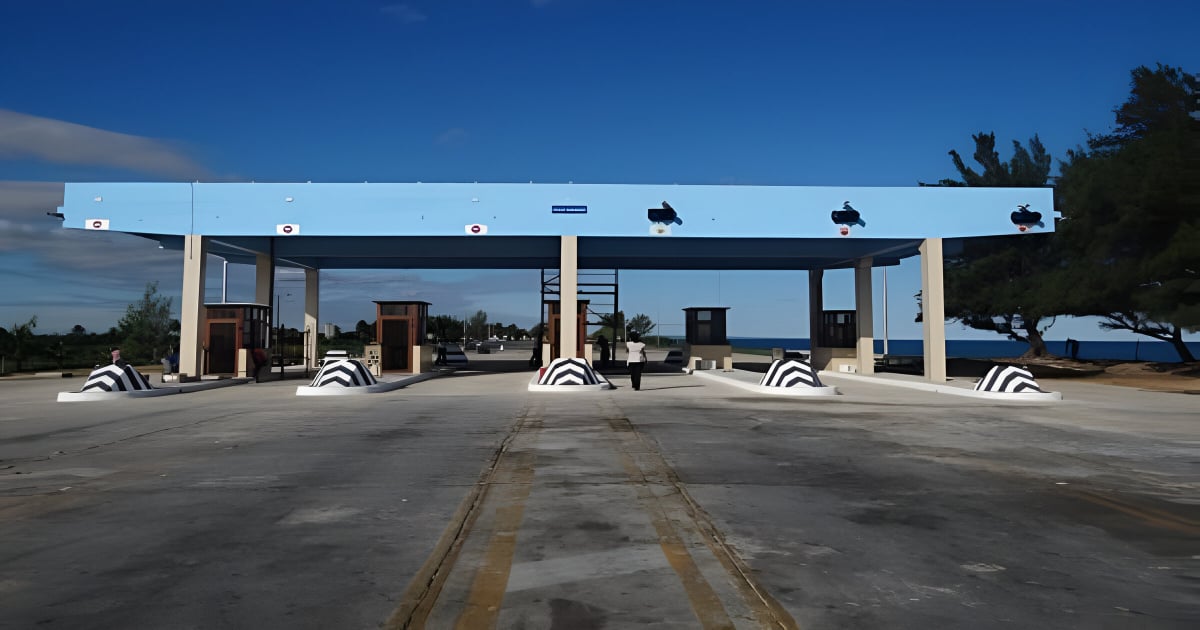The Cuban government is considering the introduction of new tolls on the nation's roads as a strategy to fund the upkeep and enhancement of the country's deteriorating road infrastructure. This announcement was made by the Minister of Transport, Eduardo Rodríguez Dávila, during a meeting of the Commission for Service Affairs, prior to the Fourth Ordinary Period of Sessions of the National Assembly of People's Power (ANPP) in its Tenth Legislature.
Amidst a challenging economic landscape, the proposal aims to generate foreign exchange to ensure the safety and quality of Cuba's main transportation routes, according to the state-run media, Cubadebate. The minister revealed that four feasibility studies have been completed to expand these toll points, focusing on the Havana-Matanzas Tourist Corridor (Vía Blanca) from point zero to the city's entrance, the Havana Bay Tunnel, the José Martí International Airport from the intersection with Avenida Boyeros to beyond Terminal 4, and the Holguín-Guardalavaca Highway, as reported by the Cuban News Agency.
Cuba's road system currently faces significant challenges due to resource shortages, accumulated wear and tear, and climate impacts. Many roads are plagued with potholes, cracks, and impassable sections, hindering mobility and increasing accident risks. "We have a deteriorated road structure, and although measures have been taken, road recovery is not progressing as expected," the official noted.
The grim state of Cuban roads is supported by numbers. Of a planned 911,746 tons of hot asphalt concrete, only 192,271 tons, or 21% of the target, have been laid to date, according to Rodríguez Dávila. Additionally, the country lacks the resources to secure the technical support required for road-related activities, and the fuel volumes necessary to sustain these operations cannot be obtained.
Rodríguez Dávila stated that "in 2025, we will visit each municipality to thoroughly assess the road situation and devise a strategy in line with the current economic conditions."
Last year, it was revealed that the Chinese government provided a donation to Cuba's Ministry of Construction, intended for road and international airport paving on the island. The donation included 93 pieces of equipment such as 25 dump trucks, 25 vibratory rollers, compactors, pavers, six front loaders, loaders, and backhoes, among others. The donation also featured 26 generator sets with lighting towers for nighttime work.
According to Cuban authorities, over 700 people lost their lives due to traffic accidents last year. Although not the sole factor, the poor state of the roads contributes to these fatalities.
Understanding Cuba's Road Infrastructure Challenges
Why is the Cuban government proposing new tolls?
The government is proposing new tolls to generate funds for the maintenance and improvement of the country's deteriorating road infrastructure, which has suffered due to resource shortages and climate impacts.
What areas have been identified for potential toll implementation?
Potential toll points include the Havana-Matanzas Tourist Corridor (Vía Blanca), the Havana Bay Tunnel, the route from José Martí International Airport intersection with Avenida Boyeros to beyond Terminal 4, and the Holguín-Guardalavaca Highway.
What support has Cuba received for road improvements?
Cuba received a donation from China, which included equipment such as dump trucks, vibratory rollers, compactors, and lighting towers, aimed at improving roads and international airports on the island.
